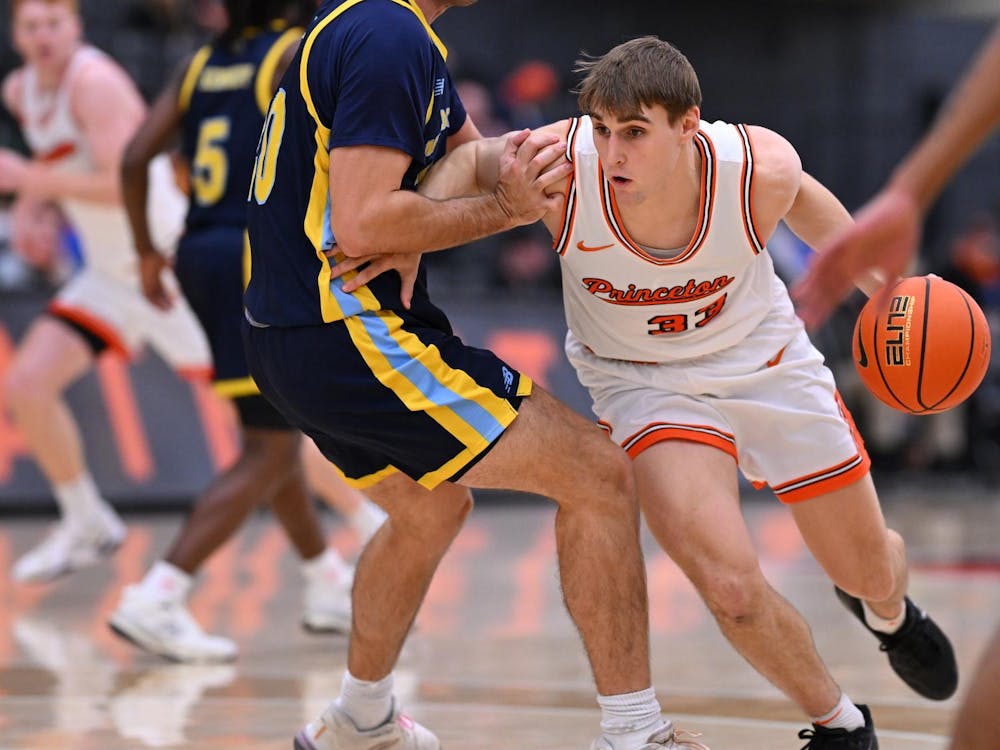At a panelFridaymorning, Oregon State basketball head coach CraigRobinson’83 got a laugh from the audience with a joke behind which there is certainly a great deal of truth:
“There are three things that everybody thinks they can do,” he said. “Tend bar, start a fire and coach basketball.”
The Alumni-Faculty Forum, called Sports: The Inside Story, centered on the changing nature ofcollegeathletics and repeatedly returned to the question of whether or not collegeplayersshould be paid.
Robinsonand the other speakers on the panel — president of the Baltimore Ravens Dick Cass ’68, 16W Marketing partner Frank Vuono ’78, sports consultant Andrea Leand ’88 and Time Magazine senior writer Sean Gregory ’98 — came to the consensus that the same was true for changing the rules incollegeathletics. The discussion, held in McDonnell A02, was moderated by current men’s basketball head coach Mitch Henderson ’98.
Robinson, the brother of first lady Michelle Obama ’85, spoke in favor of granting student-athletes some kind of compensation. He explained that hisplayerswere often forced to go to extreme lengths — including living off-campus — to ensure that everyday actions of theirs, such as taking a date to a movie, did not constitute breaches of the NCAA’s rigid regulations. He said that something should be done to giveplayersa chance to play while remaining a part of the campus community.
“That stuns me every time I think about it, because the best part of my Princeton experience was getting out and going to the movies, or to the eating clubs,”Robinsonsaid.
Cass, on the other hand, said he was not in favor of paying student athletes.
“I would not pay athletes anything other than a stipend,” he said. “I think they’re getting paid in terms of getting a scholarship.”
“I’d be cool with that if they all got degrees,”Robinsonresponded later in the discussion. “I’ve got 13 guys on my team who all think they’re going to be in the NBA — no matter what I tell them ... My job is to explain to them that they’re not in the NBA and this is why you’ve got to get your degree.”
He went on to propose that the NCAA make scholarships available to student-athletes for life.
“Let them come back to school when they figure [out that they need acollegedegree] and get that degree,” he said.
Robinsonand Cass agreed that the focus should be on making sure athletes feel like they are a part of the campus culture.
When the issue came up again during the question and answer portion of the discussion, Cass and others said they worried about the impact payingplayerscould have on less popular sports, which do not generate much income.
Gregory juxtaposed a student on the club fishing team at Central Florida who had made over $30,000 from his sport over the course of hiscollegecareer and former UCLA power forward Ed O’Bannon, who is bringing a class action lawsuit that could affect everycollegesportsplayeragainst the NCAA, claiming that he is entitled to compensation for the use of his likeness in a video game.
Another member of the audience warned incoming University president Christopher Eisgruber ’83 that somecollege coaches were paid more than their presidents, asked about coaches’ salaries. Henderson responded, noting that this was another aspect ofcollegeathletics which was getting out of hand.
“In the grand scheme of things, I think we’re running out of control here in terms of coaches’ salaries,” he said.
Although most of the conversation revolved around the problems facing collegiate athletic programs, the consensus was that none of these issues were pressing at Princeton.
“The Ivy League is probably the greatest model in the country for balance between academics and athletics,” Vuono said.
The panel ended with some of its members giving advice to students who wished to go into the sports world aftercollege.
Gregory said that, in order to be a member of the sports media, one must “be able to do everything” and learn how to use new technologies by heart.
Robinson’s advice for aspiring coaches was to find a place to coach, regardless of the level or even the sport.
“Start coaching kids as early as you can,” he said.
Vuono stressed that, although it is easy to think of a career in sports as fun and games, real life was not likeJerry Maguire. His message was simple: “Remember it’s work.”








